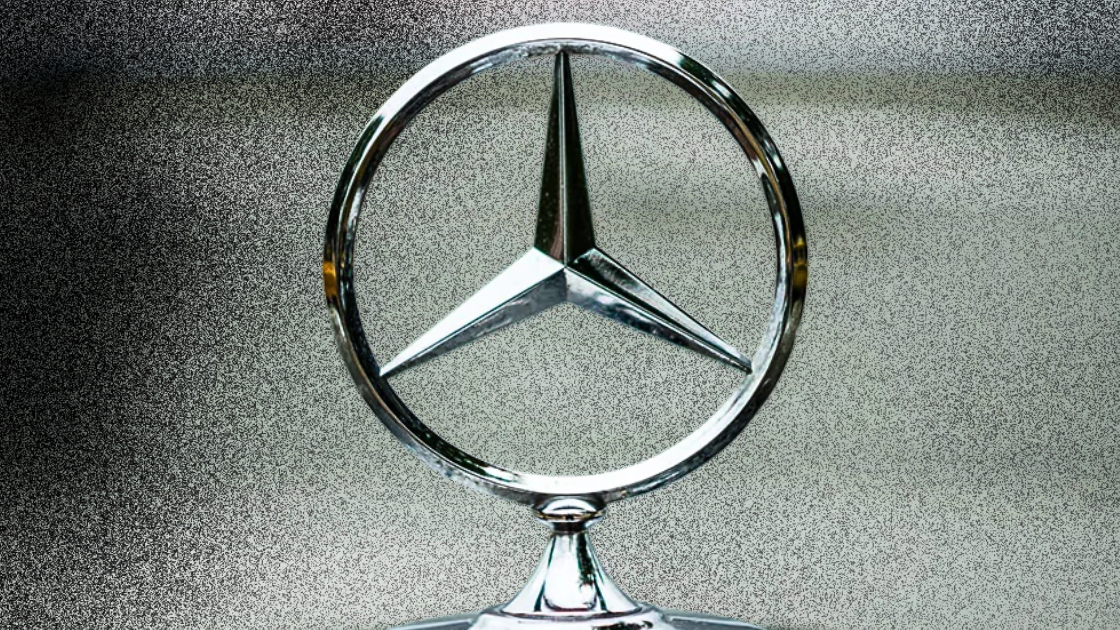Hey everyone. It’s the end of another big week covering the top stories and data insights in the automotive industry, and I’d like to know —
Are the daily roundups adding value to your day? Do they save you time? Let me know by answering a quick poll at the bottom of this article.
Now, here are today’s top stories.
— CDG

1. New car inventory is up, prices stuck in high gear
Overview: After years of tumultuous vehicle supply constraints, new car inventory levels are improving a lot compared to last year. But the question is – will this reprieve be enough to bring prices down to more affordable levels?
Key quote: “The worst of the uncertainty may be behind us. The market has not emerged unscathed, and few aspects have returned to pre-pandemic levels. We find ourselves in a ‘new normal’ phase,” writes Sr. Director of Industry Data and Insights Rebecca Lindland in Cars.com’s April Industry Insights report.
New car inventory levels increased by 35% year-over-year in April, but were down 3.5% from March. Yet, inventory is still 1 million units shy of pre-pandemic levels.
The average new car price remains relatively flat compared to both last year and last month. But compared to 2019 levels, new car prices are still inflated by a staggering 30%. Although, over time, the price mix has changed.
Inventory skewed heavily toward $50,000+ vehicles at 41% market share. The under $30,000 category had year-over-year growth of 80%, but still only gained half the share it had in 2019. The number of days on the lot for both new and used EVs is higher year-over-year.,
Used car prices tend to drop as new car inventory improves. While prices were flat month-over-month, they are down 6% from a year ago.
Inventory is roughly the same as it was this time in 2023, but has dropped by nearly half a million units since 2019.
Additionally, used prices have climbed $7,271 over the 5-year period.
New EV supply is up 100% year-over-year, leading to a slight average price dip of 5% ($62,927). Used EV supply was up 42%, but prices were down a hefty $20% to $36,093 on average.
Demand is rising, but not as fast, so days on the lot is higher year-over-year for both new and used EVs.
Audi, Cadillac, Mercedes-Benz, Subaru, and Toyota are leading the charge in fast-selling new EVs.
Why it matters: Despite the return of new car inventory, overall high prices, tepid discounts and incentives along with more expensive financing terms are keeping affordability at arm’s length.
Become an automotive insider in just 5 minutes.
Get the weekly email that delivers transparent insights into the car market.
Join 62,000 others now, it's free:
2. How much range can EVs get from an hour of charging?… It depends
Big picture: There’s been a lot of chatter over what’s holding back broader mass EV adoption by American car buyers. A common reason that keeps coming up is the time it takes to charge an EV versus the time it takes to fill up a gas car at the pump.
Recent data shows that over half (52%) of those unlikely to consider an EV worry about simply finding charging stations. Other factors, like driving range, charging time, and a lack of home or workplace charging options, also reduce EV consideration.
To compare EV charging capabilities, Edmunds tested the charging speeds of all available EVs with help from P3. They found that the fastest charging EV replenished range was 18 times slower than the average gas car.
The Hyundai Ioniq 6 was found to have the fastest charge time, replenishing 868 miles per hour of charging.

Hyundai Ioniq 6
In second place was the Kia EV6 (769 mi/hr), followed in order by the Porsche Taycan (690), Hyundai Ioniq 5 (673), and the Mercedes-Benz EQS 450+ (593).
The recently discontinued Chevrolet Bolt EUV came in as the slowest-charging EV at 172 miles per hour of charging.
The Ford Mustang Mach-E had the second-slowest charging at 257 (mi/hr) followed by the Rivian R1S (312).
Tesla's most efficient car in terms of charging is the Model 3, which has a replenished range of 568 miles per hour of charging.
Why it matters: EVs still have a long way to go before they can match the "fill-up" time of conventional gas cars. The EPA estimates that the average gas car on the road gets 26 miles per gallon. The average gas pump pumps gas at 10 gallons per minute. So, it can replenish about 15,600 miles of range in an hour.
Keep in mind that different chargers offer vastly different charging speeds. To achieve the fastest charging times, Edmunds used the highest-rated chargers each vehicle supported.
Average level 2 home chargers replenish 20-25 miles of range per hour, while Fast DC chargers offer much quicker speeds. Yet, even within Fast DC chargers, there's a range of options.
The rarest and fastest are 350 kW chargers. They can add up to 1,000 miles of range per hour. But, these are currently limited to testing facilities at some automakers.
More commonly available are 100-200 kW Fast DC chargers, which are still quite a bit faster than home chargers.
Tesla Superchargers are another option, with a max rate of around 250 kW. But, not all EVs can use even the fastest chargers. Many have a max supported rate of around 200 kW.

Are you still relying on auctions? We want to help you get out of this costly co-dependent relationship and start saving an avg. of +$2,700 per vehicle acquired with AccuTrade.
How? Tap into the stream of high-quality used cars that come through your service drive every single day. All you need to do is empower your team with a simple appraisal process that gives your customers instant, guaranteed offers.
Watch this demo to see how it works. Then, hear how the team at Germain Toyota has used it to avoid spending fees, shipping costs, and time at auctions for over 2 years. 🤯
3. The fastest and slowest-selling cars so far this month
Top line: Auto brands across the new car market right now are showing stark contrasts in vehicle availability. While some highly in-demand models are selling in as little as three weeks, others are lingering on dealer lots for over six months.
Key term: Basically, market days' supply measures how fast a vehicle is likely to sell based on present inventory levels and historical sales data.
More specifically, it is often calculated by dividing the current available supply by the average daily retail sales rate over the past 45 days.
So, a lower days’ supply means those cars are selling faster. Conversely, a higher day’s supply indicates that vehicles are selling much slower.
Why it matters: Days’ supply of vehicles is the goldilocks of new car inventory management. Too many cars, and a dealership could face vehicle aging issues and rising floorplan costs. Too few cars, and sales volume slows down. But if a dealership finds the number that’s just right, it can mitigate its expenses while still offering plenty of options for customers.
Which brands are flying off the lot?
Toyota dominates the list of fastest-selling cars, with six models cracking the top 10 list. These models range from 23 day’s supply to 36 day’s supply. The Toyota Sienna, Camry, and Corolla are the fast-selling Toyotas.

2024 Toyota Sienna
The Honda Civic ranks eighth with a 38 days’ supply.
And the Ford Maverick just makes the top 10 with 48 day’s supply.
Joining the mainstream brands are Land Rover’s Range Rover and Range Rover Sport.
With the exception of Land Rover, the top 10 fastest-selling new vehicles list all start at under $40,000, with many starting in the mid-$20,000.
Which brands are overstaying their welcome?
Stellantis is facing some serious headwinds. Four of the ten slowest-selling cars are Jeep, Ram, or Dodge. The Dodge Hornet has a days’ supply of a year and a half. The Jeep Wagoneer and Gladiator are both sitting at over 200 days.
The Volvo C40 replaced the Mach-E as the slowest-selling EV, with a 386 days’ supply. Sales pace for the Mach-E has picked up since Ford knocked back prices.
The Blazer EV, which Chevrolet just recently started selling again, has a 274 days’ supply.
Have a tip for our editorial team? Send us your scoop at [email protected].

General Motors plug-in hybrid offerings for the North American market will be here in 2027.
GM and battery supplier LG Energy Solution have reached a proposed $150 million recall settlement.
Genesis to build first full-size luxury electric SUV next year.
Here is the total compensation of each CEO at the top six public dealership groups in 2023.
Tesla said in a filing this week that it’s cutting about 600 more jobs at its manufacturing facilities and engineering offices in Fremont and Palo Alto.

We’ve got tons of great jobs hitting the CDG Job Board right now. Here are some standouts for anyone looking for their next move.
Feel at home in the service drive? Tom Whiteside Chrysler Dodge Jeep Ram, near Columbus, OH, is hiring an FCA Technician.
Sales more your game? S&P Global is looking for a Sales Executive-retail.
SaaS company BizzyCar has put the call out for account executives in Los Angeles and Orlando (remote).
Looking to hire? Add your roles today—it’s 100% free.
Thanks for reading everyone. Have a great weekend.
— CDG









